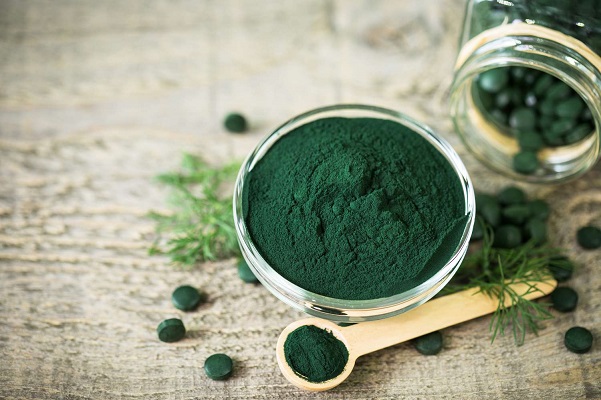On This Page
Overview
Regardless of the place, jaggery, the traditional sweetener in Indian cooking, is a necessary ingredient in both sweet and savory dishes. Although jaggery manufactured from sugarcane has been a staple in the everyday diet for hundreds of years.
But this naturally sweet food offers a tonne of health advantages. It is essentially a sort of unprocessed sugar and is produced mostly from raw, concentrated sugarcane juice that is cooked until it solidifies. It is sometimes referred to as Gur and can be prepared from coconut sap or date palm sap.
Synonyms of Jaggery
- Bella
- Vellam
- Gul
- Gur
- Sharkara
- Saccharum Officinarum
Nutritional Facts of Jaggery
A quarter-cup serving of jaggery contains:
| Calories: | 100 |
| Protein: | Less than 1 gram |
| Fat: | Less than 1 gram |
| Carbohydrates: | 26 grams |
| Fiber: | Less than 1 gram |
| Sugar: | 24 grams |
Phytochemical Constituents of Jaggery
- Fatty acid
- Alcohol
- Phytosterols
- Higher terpenoids
- Flavonoids and phenolic acids
Therapeutic Uses of Jaggery
- Prevention of respiratory issues
Jaggery might be one of the best treatments for people who frequently experience respiratory tract issues. According to studies, jaggery purges dust and undesirable substances from the body, relieving pressure on the lungs, digestive system, stomach, and intestines. For optimal outcomes, jaggery should be consumed with pepper, tulsi, dried ginger, or sesame seeds.
- Enhances appetite and digestion
Gur, or jaggery, is a digestive stimulant that aids in bettering appetite and digestion.
For better digestion, Health experts advise consuming jaggery after meals. It is a widespread practice in India among those who experience belly heaviness after meals.
- Boost immunity
Jaggery contains significant amounts of minerals including selenium and zinc as well as antioxidants.
This aids in reducing the risk of free radical damage and strengthening resistance to certain diseases. It is widely consumed in the winter because of this.
- Treat migraine and headache
Clarified butter and jaggery both relieve headaches and migraines. In Punjab, India, this treatment is frequently utilized. You can have 10 grams of jaggery with 5 ml of cow’s ghee twice daily, one hour before bedtime and an hour before sunrise, on an empty stomach.
Home Remedies Jaggery
- Glowing Skin
Although it may sound unusual, using a jaggery face pack to get that gorgeous complexion has been a beauty secret for ages. Apply a thin coating of the mixture to the skin after blending 1/2 tsp of jaggery powder with honey and lemon. After 15 minutes, wash it and wipe it dry.
- Cures flu-like symptoms
Utilize gur to combat cold and cough symptoms. To get the advantages, all you have to do is combine it with warm water and drink it. You can also use it in place of sugar in your tea. People typically eat jaggery in the winter because it generates heat in the body. Jaggery is a wonderful sweet that has a warming effect that can treat the flu and the common cold.
- Cure Hiccups
Eating jaggery can assist if you have hiccups. Simply combine it with powdered dried ginger. To relieve pain, experts advise consuming this concoction together with a glass of warm water. To solve this issue, combine 3 grams of jaggery with 500 milligrams of ginger powder.
- Aids With Urinary Problems
Both sugarcane and jaggery can treat diuretic people naturally. It aids in promoting urination, which is good news for those who have trouble urinating. Jaggery can also aid in lowering bladder inflammation. Drinking a glass of hot milk sweetened with jaggery is advised by experts to alleviate urinary issues and increase urine flow.
- Controls Acne And Pimples
Numerous skin issues, including pimples and acne, can be treated and avoided with the use of jaggery. As a result, it keeps the skin free of blemishes. Additionally, it inhibits aging symptoms including wrinkles and other imperfections.

Have A Health Issue?
Consult Online
- Dr. Sahil Gupta (B.A.M.S., M.H.A.)
Ayurvedic Allergy Specialist
CEO & Founder of IAFA®
Ayurvedic Aspects of Jaggery
Ayurveda claims that regularly consuming cleaned and washed jaggery reduces Kapha dosha and acts as a diuretic.
On the other hand, unrefined jaggery balances the vata and pitta doshas in addition to being a natural blood purifier, enhancing strength, and acting as an aphrodisiac. Jaggery that has been washed or dhauta guda removes toxins and balances pitta doshas.
However, Ayurvedic doctors highly advise consuming jaggery that is at least a year old for improving digestion, purifying the urinary tract and gastrointestinal system, enhancing heart function, and treating anemia.
Daily Dose: Around 10 grams of jaggery should be enough for daily consumption.
Side Effects of Jaggery
- Weight gain
Jaggery is not a food to eat if you’re trying to lose weight. Even a small amount won’t hurt you, if you consume too much, it could make you gain weight. It is loaded with sugar and carbohydrates, which is not what you want when trying to lose weight.
- Parasitic infections
Jaggery that has been improperly made or contains impurities can raise your chances of contracting worms and intestinal parasites. Jaggery is sometimes manufactured in unsanitary settings in villages, where it is frequently packed with germs that may or may not be harmful to your health.
Conclusion
The multiple health advantages of jaggery are what make it so unique. To sate your sweet desire without endangering your health, try jaggery regularly. Despite being promoted as a superfood, jaggery has several negative side effects. The key is to drink it in the proper dosages—neither more nor less—to get the full advantages. The high-calorie count could cause weight loss and a rise in blood sugar. Certain impurities in jaggery have been linked to parasite infections and other digestive problems like ulcerative colitis. It may cause inflammation and exacerbate joint pain in certain persons. In case of any side effects or any allergy seek help from Dr. Gupta at IAFA who through herbal approach cure illness and all types of allergies.
References
- Food Chemistry: “Cytoprotective and antioxidant activity studies of jaggery sugar.”
- https://www.ncbi.nlm.nih.gov/pmc/articles/PMC4441162/










